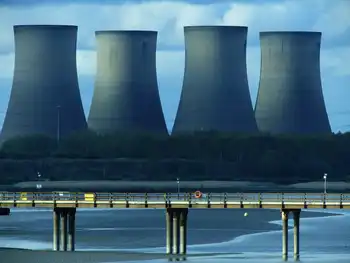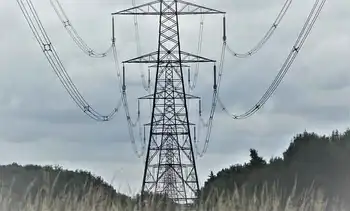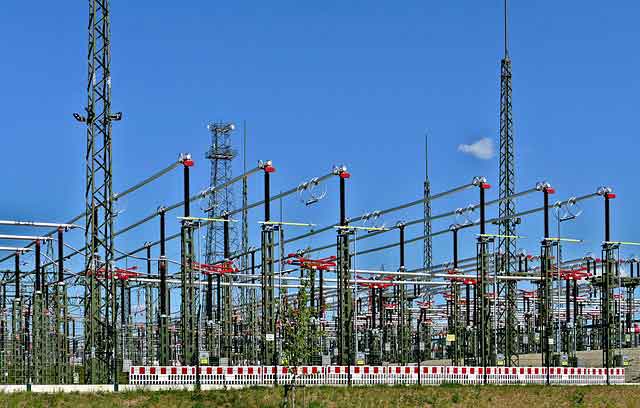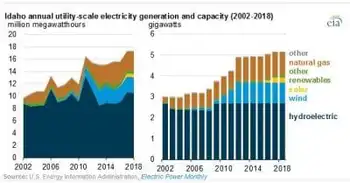U.S Bans Russian Uranium to Bolster Domestic Industry
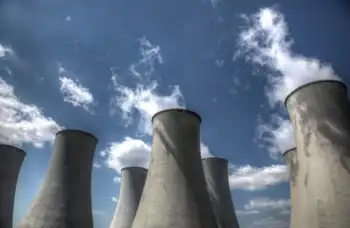
NFPA 70e Training - Arc Flash
Our customized live online or in‑person group training can be delivered to your staff at your location.

- Live Online
- 6 hours Instructor-led
- Group Training Available
U.S. Russian Uranium Import Ban reshapes nuclear fuel supply, bolstering energy security, domestic enrichment, and sanctions policy while diversifying reactor-grade uranium sources and supply chains through allies, waivers, and funding to sustain utilities and reliability.
Key Points
A U.S. law halting Russian uranium imports to boost energy security diversify nuclear fuel and revive U.S. enrichment.
✅ Cuts Russian revenue; reduces geopolitical risk.
✅ Funds U.S. enrichment; supports reactor fuel supply.
✅ Enables waivers to prevent utility shutdowns.
In a move aimed at reducing reliance on Russia and fostering domestic energy security for the long term, the United States has banned imports of Russian uranium, a critical component of nuclear fuel. This decision, signed into law by President Biden in May 2024, marks a significant shift in the U.S. nuclear fuel supply chain and has far-reaching economic and geopolitical implications.
For decades, Russia has been a major supplier of enriched uranium, a processed form of uranium used to power nuclear reactors. The U.S. relies on Russia for roughly a quarter of its enriched uranium needs, feeding the nation's network of 94 nuclear reactors operated by utilities which generate nearly 20% of the country's electricity. This dependence has come under scrutiny in recent years, particularly following Russia's invasion of Ukraine.
The ban on Russian uranium is a multifaceted response. First and foremost, it aims to cripple a key revenue stream for the Russian government. Uranium exports are a significant source of income for Russia, and by severing this economic tie, the U.S. hopes to weaken Russia's financial capacity to wage war.
Second, the ban serves as a national energy security measure. Relying on a potentially hostile nation for such a critical resource creates vulnerabilities. The possibility of Russia disrupting uranium supplies, either through political pressure or in the event of a wider conflict, is a major concern. Diversifying the U.S. nuclear fuel supply chain mitigates this risk.
Third, the ban is intended to revitalize the domestic uranium mining and enrichment industry, building on earlier initiatives such as Trump's uranium order announced previously. The U.S. has historically been a major uranium producer, but environmental concerns and competition from cheaper foreign sources led to a decline in domestic production. The ban, coupled with $2.7 billion in federal funding allocated to expand domestic uranium enrichment capacity, aims to reverse this trend.
The transition away from Russian uranium won't be immediate. The law includes a grace period until mid-August 2024, and waivers can be granted to utilities facing potential shutdowns if alternative suppliers aren't readily available. Finding new sources of enriched uranium will require forging partnerships with other uranium-producing nations like Kazakhstan, Canada on minerals cooperation, and Australia.
The long-term success of this strategy hinges on several factors. First, successfully ramping up domestic uranium production will require overcoming regulatory hurdles and addressing environmental concerns, alongside nuclear innovation to modernize the fuel cycle. Second, securing reliable alternative suppliers at competitive prices is crucial, and supportive policy frameworks such as the Nuclear Innovation Act now in law can help. Finally, ensuring the continued safe and efficient operation of existing nuclear reactors is paramount.
The ban on Russian uranium is a bold move with significant economic and geopolitical implications. While challenges lie ahead, the potential benefits of a more secure and domestically sourced nuclear fuel supply chain are undeniable. The success of this initiative will be closely watched not only by the U.S. but also by other nations seeking to lessen their dependence on Russia for critical resources.





